The clock is ticking on my time in London, though I'm dismayed to report that I still have no visa for Russia. Or, as we say, "Y меня нет виза". No visa means no plane ticket, hence no departure date, hence I continue to waffle around in a sort limbo which is not really unpleasant, just slightly tiresome. However, after a cool grey sort of week, it looks like the weather is warming, and since my entire existence seems to be about words words words words words these days, I decided to have a bash at a few more particularly English words and phrases while I'm still still actually surrounded by the language. Today, we're looking at words that are sort of summery.
Bank Holiday = Statutory Holiday, public holiday. Of course these don't just happen in summer, but year round. Interestingly, there is not automatic right to a day off on a Bank Holiday, but in practice most people get the day off, or get extra pay for working on a Bank Holiday. And yes, the banks do close. The Bank Holidays in England and Wales are: New Year's Day, Good Friday, Easter Monday, May Day (the first Monday in May), the Spring Bank Holiday (original name that one, it's on the last Monday in May), the Summer Bank Holiday (last Monday in August, with the Her Majesty's Loyal Guild of Bank Holiday Namers again doing overtime on that one...), Christmas Day and Boxing Day. In Scotland they get an extra day at New Year, and St. Andrews Day. In Northern Ireland they get St. Patrick's Day and July 12th (for the Battle of the Boyne).
Bank Holiday Weekend = Long Weekend. As in Canada, a long weekend is a cause for celebration, an excuse for a short trip, and a reason to fire up the BBQ. In England it's also a virtual guarantee of miserable weather. The basic assumption is that it will rain on a Bank Holiday, especially one in the summer, but this gives people a chance to moan a bit which is, of course, the national sport (after queuing). And a slight aside: You don't do things ON the WEEKend. You do them AT the weekEND. Different preposition, and the stress goes on the second syllable.
Mac (Mackintosh) = Rain coat. Since it will certainly rain on your Bank Holiday Weekend, you'd be well-advised to have a mac on hand. Mac is short for Mackintosh, the trade name for the original rubberised canvas waterproof coat invented by (please try to hide your surprise) one Charles Macintosh (the K got added later) (And not this Charles Mackintosh). Now it's a generic term for a waterproof coat. The other generic term for this would be waterproof. As in, "Avery packed his waterproof for the trip across Dartmoor." If you've got waterproofS (plural) then you're probably packing a mackintosh and waterproof trousers.
Pack a Mac = If you're short on space you might consider investing in a pack-a-mac, that lightweight sort of waterproof jacket that folds up into its own pouch.
Wellies = Rubber Boots. If its going to get wet, you must have wellies. Short for Wellingtons, and named after the famous Duke, who originated the style of footwear. Though it's important to note that the original Wellington boots were short leather affairs, not the all-rubber ones we're used to today. (One can't help but think the good Duke would have cut a slightly less dashing figure if caught sloping around the battlefield in gumboots...) Here they are usually a greenish colour and often have an extraneous strappy buckle thing on the side that's obviously a vestige of something that was once useful, like the welly equivalent of an appendix. In North America, of course, we favour the traditional black-and-orange. Besides the eponymous Duke, another celebrity who's often portrayed in wellies is Paddington Bear.
Caravan = Trailer. Once you've packed your wellies, your mac, and possibly your Paddington Bear, where exactly might you go on a Bank Holiday Weekend? Well, you might hook up your caravan and head out onto the open road. As in North America, its a popular pastime to go caravanning. Or, you might own a caravan that stays parked in a serviced caravan park. It's a bit like having a cottage without having to build the cottage.
Lilo (pronounced LIE-low) = Air mattress. If you're trying to squeeze a few extra overnight guests into your caravan, or if you want to float around in the swimming pool at your caravan park, you'll likely employ a lilo. Lilo is a trade name for a particular brand of air mattress, but it's used generically like kleenex, or zerox (or mackintosh, for that matter…)
Pedalo = Paddle boat. If floating around on a lilo isn't energetic enough for you, you might hire a pedalo, which is the English word for those ridiculous small boats that float aimlessly around small, calm bodies of water while their occupants pedal furiously with the mistaken notion that their activity is somehow connected to the movement of the craft. (Also note: you HIRE things, not RENT them.)
Bangers = sausages. If you've gone to all the trouble of getting out in your caravan (and if you've got an umbrella big enough) you'll probably want to fire up the BBQ and throw on some bangers, another word for sausages. While the BSE crisis of a few years back resulted in a general upgrade to the quality of meat in British sausages, the term "banger" is still unregulated, meaning that while foodstuff labelled "pork sausage" must, by law, contain at least 42% actual piginess, a "banger" could have all kinds of nasty things in it, including, but not limited to, connective tissue, meat slurry and, quite possibly, recycled wellies. The term "banger" originates in the early 20th century, probably as a result of the fact that skins of low-quality sausage-like things with high water content tended to burst open with a bang when cooked. I'd also be remiss if I didn't mention bangers and mash, one of the iconic dishes of the land, which consist of sausages and mashed potatoes, usually served with gravy. Lovely.
Sausage Dog = Wiener Dog, or Daschund.
Brown Sauce = HP Sauce. A popular accompaniment to bangers. Also very good on bacon rolls. As distinct from red sauce, which is sometimes a term for ketchup (which is also commonly called tomato ketchup), brown sauce is, well, brown. Not red. It's basically ketchup with Worchstershire sauce in it, and maybe a few other things for good measure - anchovy, tamarind, molasses, whatever. The best known brand of brown sauce is HP sauce, which has the distinctive label showing the Houses of Parliament, since that's where it got its name. The originator, Frederick Gratin, heard that his product was being served in the restaurant of the House and registered the name in 1895. HP is by far the most popular brand of brown sauce in the country (and, one therefore presumes, in the universe).
Jacket potato = baked potato. Alongside your bangers, you might decide to throw some potatoes on the BBQ and cook them whole in their skins. In this case, you'd be making jacket potatoes. Or, potatoes that still have their jackets on. The jacket potato is a common fast food and is normally served with a much wider choice of toppings than the traditional butter-sour cream-chive combo that's normal in North America. Standard fillings are: grated cheese, baked beans, tuna mayonnaise, and chill. They're a nice quick lunch, since once they're slathered in toppings, they're quite filling.
Flake 99 = Hmmm… there really is no equivalent to a Flake 99. It's an English phenomenon. A Cadbury's Flake is a particular type of chocolate bar that's long and skinny and, well, flaky. The story is that a Cadbury's employee noticed that "when the excess from the moulds was drained off, it fell off in a stream and created folded chocolate with flaking properties". This was developed into the Flake bar, which looks like this:
A Flake 99, or 99 Flake, or just a 99, is a soft serve ice cream, normally vanilla, served in a pointy cone and into which a half-sized Flake bar is inserted at a jaunty angle. They're a standard offering in ice cream vans all over the country. You can also get a variation with TWO Flakes, which is apparently sometimes called Bunny Ears. You'll almost certainly encounter an ice cream wagon selling Flake 99s at your local fête.
Fête (pronounced FATE) = Fair. The Village Fête is an English institution that usually involves such classics as bunting, raffles (often called a tombola), baking competitions, white elephant stalls, home produce like jams and pickles, and poorly equalised sound systems. Fête-goers may also be subjected to Maypole dancing or, in extreme cases, Morris Dancing (which is definitely another post…). A fête is the equivalent of a summer fair in Canada, though the term is usually used for smaller events held in villages or neighbourhoods, not really the bigger events that have big mechanical fairground rides and such, like Dodge' Ems.
Dodgem = Bumper Cars. Another trade name (think "dodge them') that's passed into the vernacular, though this one is a bit silly because everyone knows that the whole point is to ram into the other cars as hard as possible, not to dodge them. Though the Elfin Safety Brigade occasionally trot out the notion that name dodgem indicates that the fun comes from the dodging, which is clearly crap.
Marquee = Big tent, especially one erected for a fête or other special occasion. A marquee is a crucial element of any English summertime event because of the virtual guarantee of rain at any moment. Having a decent marquee means you can seek shelter for long intervals when you can carefully examine the fête display of prize-winning runner beans, enter the tombola, re-examine the runner beans, contemplate having a cup of substandard tea, strike up a conversation with a neighbour about the fascinating world of runner beans, and then lose all hope and make a dash through the rain to the local pub.
And that's all I've got for you this week.
Bank Holiday = Statutory Holiday, public holiday. Of course these don't just happen in summer, but year round. Interestingly, there is not automatic right to a day off on a Bank Holiday, but in practice most people get the day off, or get extra pay for working on a Bank Holiday. And yes, the banks do close. The Bank Holidays in England and Wales are: New Year's Day, Good Friday, Easter Monday, May Day (the first Monday in May), the Spring Bank Holiday (original name that one, it's on the last Monday in May), the Summer Bank Holiday (last Monday in August, with the Her Majesty's Loyal Guild of Bank Holiday Namers again doing overtime on that one...), Christmas Day and Boxing Day. In Scotland they get an extra day at New Year, and St. Andrews Day. In Northern Ireland they get St. Patrick's Day and July 12th (for the Battle of the Boyne).
Bank Holiday Weekend = Long Weekend. As in Canada, a long weekend is a cause for celebration, an excuse for a short trip, and a reason to fire up the BBQ. In England it's also a virtual guarantee of miserable weather. The basic assumption is that it will rain on a Bank Holiday, especially one in the summer, but this gives people a chance to moan a bit which is, of course, the national sport (after queuing). And a slight aside: You don't do things ON the WEEKend. You do them AT the weekEND. Different preposition, and the stress goes on the second syllable.
Mac (Mackintosh) = Rain coat. Since it will certainly rain on your Bank Holiday Weekend, you'd be well-advised to have a mac on hand. Mac is short for Mackintosh, the trade name for the original rubberised canvas waterproof coat invented by (please try to hide your surprise) one Charles Macintosh (the K got added later) (And not this Charles Mackintosh). Now it's a generic term for a waterproof coat. The other generic term for this would be waterproof. As in, "Avery packed his waterproof for the trip across Dartmoor." If you've got waterproofS (plural) then you're probably packing a mackintosh and waterproof trousers.
Pack a Mac = If you're short on space you might consider investing in a pack-a-mac, that lightweight sort of waterproof jacket that folds up into its own pouch.
Wellies = Rubber Boots. If its going to get wet, you must have wellies. Short for Wellingtons, and named after the famous Duke, who originated the style of footwear. Though it's important to note that the original Wellington boots were short leather affairs, not the all-rubber ones we're used to today. (One can't help but think the good Duke would have cut a slightly less dashing figure if caught sloping around the battlefield in gumboots...) Here they are usually a greenish colour and often have an extraneous strappy buckle thing on the side that's obviously a vestige of something that was once useful, like the welly equivalent of an appendix. In North America, of course, we favour the traditional black-and-orange. Besides the eponymous Duke, another celebrity who's often portrayed in wellies is Paddington Bear.
Caravan = Trailer. Once you've packed your wellies, your mac, and possibly your Paddington Bear, where exactly might you go on a Bank Holiday Weekend? Well, you might hook up your caravan and head out onto the open road. As in North America, its a popular pastime to go caravanning. Or, you might own a caravan that stays parked in a serviced caravan park. It's a bit like having a cottage without having to build the cottage.
A lovely looking little caravan. Sadly, most caravans over here are just like ones in North America - bigger, more plasticy, and more likely to have flat screen tvs
Pedalo = Paddle boat. If floating around on a lilo isn't energetic enough for you, you might hire a pedalo, which is the English word for those ridiculous small boats that float aimlessly around small, calm bodies of water while their occupants pedal furiously with the mistaken notion that their activity is somehow connected to the movement of the craft. (Also note: you HIRE things, not RENT them.)
You're not fooling anyone with you're "I'm in control here" expressions. We know the truth.
Sausage Dog = Wiener Dog, or Daschund.
Because really, what's the point in having your own blog is you can't post a gratuitous picture of a daschund dressed up like a hotdog?
HP Sauce.
A popular topping combo of baked beans and grated cheese.
See? Flaky. Though in truth, a more appropriate name would be Cadbury's Fold.
Flake 99, though the Flake in this specimen is not displaying the characteristic jaunty angle usually seen.
A typical offering.
If you're meant to be dodging, why do they have enormous puffy bumpers?
And that's all I've got for you this week.

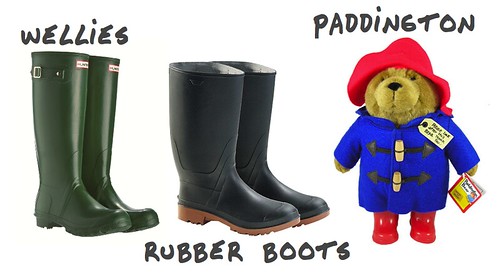
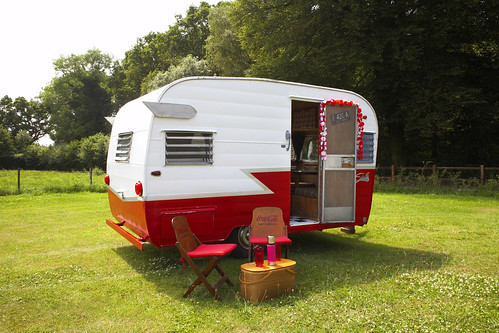
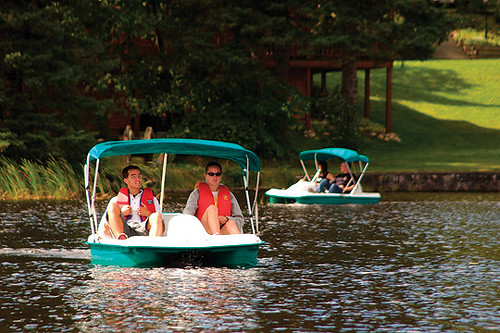
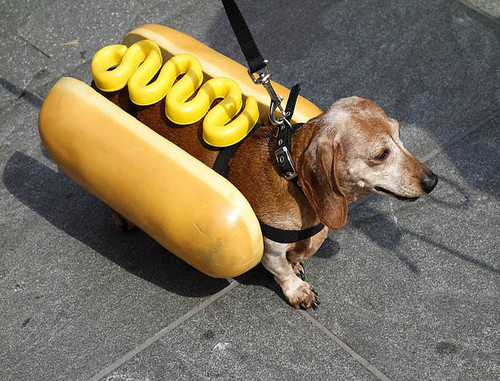
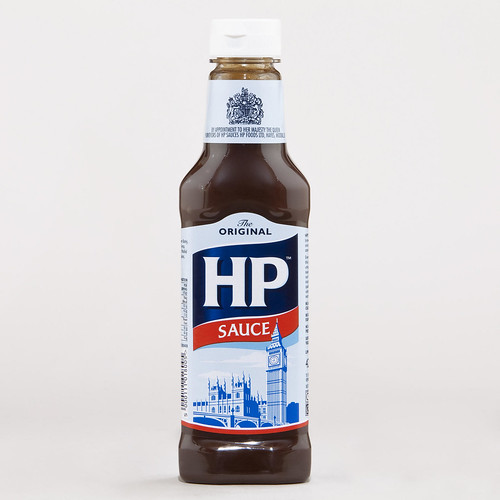

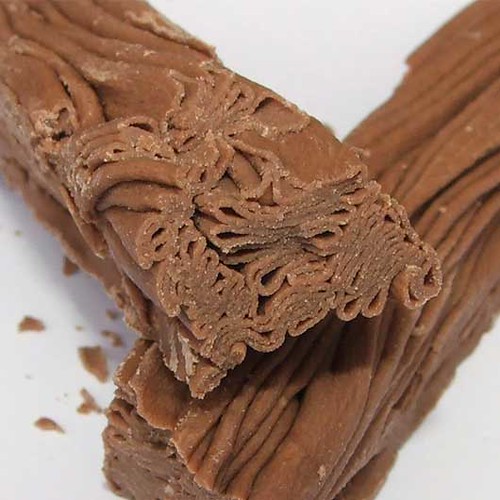
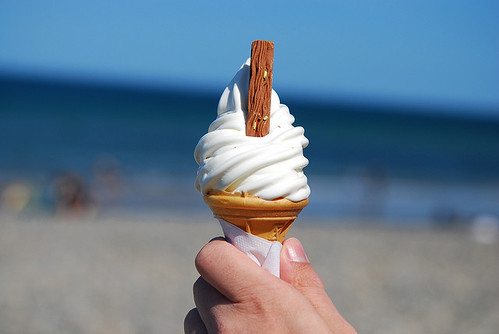

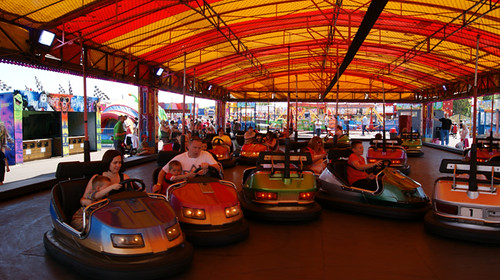


4 Comments:
I think bumper cars have bumpers, but dodgems probably have fenders. Thoughts?
PS- I love your blog and can't wait to hear about going, staying, working, playing and living in Russia. Good luck and enjoy! (When the visa comes through...)
BBQ bangers, some of the brown sauce and a good pint. Cheers to a visa in good standing making its way to you.
Why is there a "99" with the flake? I'm guessing it's not a Gretzky reference. Maybe the 99th concoction, or it goes for 99p? Hmmm. Keep on blogging, Loving the updates!!
Post a Comment